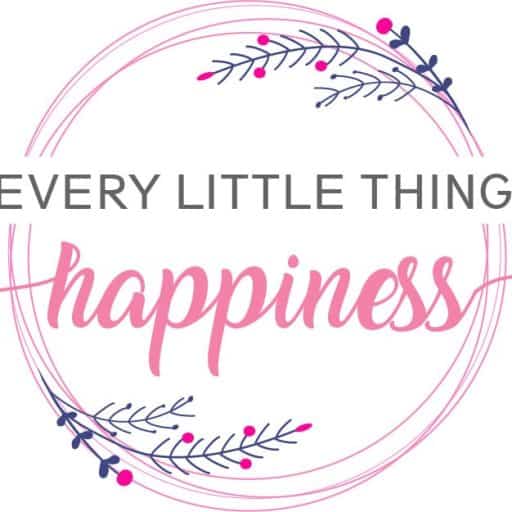How to help kids to avoid lying to you. Liar Liar Pants on fire– A pretty popular phrase with a deeply rooted issue that needs to be addressed with utmost care. Little children, generally, start lying from the early age of three when the intelligence to lie develops and they can separate the fact from fiction. Before this age, they do not lie with a purpose but are simply experimenting their new found vocal world, lying begins when they realize that you aren’t a mind-reader and when they can grasp the difference between a truth and a lie, Of course, these little beings aren’t naturally deceitful and may simply be playful. But if it becomes a common practice, it can be worrisome. Read on to find out some simple ways to help your child not to lie because prevention is better than cure.
6 Best Ways To Help Kids Tell You The Truth

Why do kids lie?
A child doesn’t know what lying is. They do not start lying just like that. There are several reasons why small kids hide the truth.
1. They want to safeguard themselves: Most often, children lie only to protect themselves when they have done something that they shouldn’t have. They manipulate the truth to avoid punishment. An interesting point here is that the child can identify that he/she has done something wrong, feels guilty, and may even want to rectify it but the instinct of fear takes over.
2. They are in desperate need of attention: A child crying or expressing extreme pain when minorly hurt or perhaps not hurt at all may simply resort to this behavior because he/she just wants to be loved and pampered at that very moment.
3. They want to gain control of the situation: Majorly this is the reason when they suffer from low self-esteem. They want to exercise the power to change a fact. For example, telling you they stood first in the school lemon spoon race but in reality, they didn’t. They may only want to gain your approval of being capable. They just want to make themselves look worthy in front of you.
4. They want to get rid of the responsibility: My stomach hurts is every child’s favorite excuse for not attending the school. When they are made to do something they don’t want to do, the result is a sweet little lie to run away from the burden they feel. Their interest lies somewhere else which motivates them to escape from the situation by lying.
5. They are simply fantasizing: Kids have a brilliant imagination and can sometimes mix up their imaginary world into the real one. This isn’t an actual lying, it is more of make-believe play. So if your child just told you that he was talking to a little unicorn, he is just trying to fulfill a need that cannot be fulfilled in reality.
What can you do so that your kids avoid lying to you?
No parent wants their child to fib or gets into the habit of lying. The moment you understand he/she is lying to you, you want to find out how to stop your kid from lying. Read below to find out some simple ideas to stop them from lying and tell you the truth.
How to help your kid to avoid lying to you and tell you the truth always

1. Set an example from an early age
Children have to be taught moral conduct, they aren’t born with one. So you need to be the right example for them to learn this. If you have the habit of lying or if you lie to your child often, they will feel that it is normal and there is nothing wrong with it. Parents who encourage their child to lie to the other parent, won’t be away from the day when they discover that the child has started lying to them too. You should believe and portray good moral behavior for them to watch and learn.
2. Storytelling
Involving them in a fun and interesting way while teaching them a lesson is a wonderful way to build a deep sense of values. There are several books with excellent morals focusing on good qualities which aren’t too preachy or heavy for the munchkins. The best story to start with is ” They boy who cried wolf”
3. Be Gentle and Understanding
An approachable parent will always raise a child that speaks his/her mind without fear. If your child is able to confide in you, there are lesser chances of him/her lying. Bonding well you’re your child will become the foundation of the truth-telling. Don’t be hurt if they express their dislike about people or things, they are just sharing their emotions. So responding to it rather than reacting negatively will win here.
4. Offer them your support
If they need that moment of attention, give it to them and acknowledge it. Make them feel safe always and instead of hiding, they will be the first ones to tell you the trouble and expect you to find a solution to them. If you shun them away or punish them unnecessarily, you will end up spoiling the relation. Agreeing that their wrong actions weren’t a deliberate one will help you build trust and avoid bigger complications. Praising them on their achievements, rewarding their good behavior will ensure that the child does not have an attention deficit.
5. Keep your expectations low
School going children commonly lie about their grades, or about performing well in a competition. This is because of the tremendous pressure put across by the Parents. Parents anticipate that their child is bound to be on top and children don’t want to feel ashamed when this isn’t fulfilled. Hence they resort to manipulating the truth to make it presentable to the Parents. Here the child is most definitely not at fault, and simple molding and re-adjustment of our expectations will do magic. We don’t want our children to hide their flaws but to accept them graciously.
6. Stay clear from accusing
If you have followed all above and yet find your child covering up the truth, avoid accusing them at all costs. Deal with the lying instead of calling them a Liar. Try explaining them with the utmost affection that lying is wrong, harmful, and the consequences of their action with a calm mind. Do not confront them angrily even though that might be the most likely human instinct. Dig a little and find out the reason, mildly ask them to apologize and end the topic right there instead of dragging it further. The next time they tell you their mistake frankly, make sure you applaud their brave step.
Even though lying is considered as a developmental milestone ( it shows that they are developing “The Theory of Mind”), a child who often lies is usually under pressure and it is not a rare sight for Parents to witness an innocent face with angelic eyes to conceal the right and blame it on someone else.
If it is nipped in the bud, the chances of raising honest adults with strong moral values will be very high. A young mind is very sensitive and receptive to its surroundings. Let’s create an environment for them where they are never forced to lie, in fact, avoid lying and tell the truth always.
How do you make sure your kids avoid hiding things or lying to you? How do you encourage your child to tell you the truth always? Let me know in the comment section below
Content contribution : Tripti Jain
Some interesting reads from parenting section
Is your child ready to go to Playschool?










